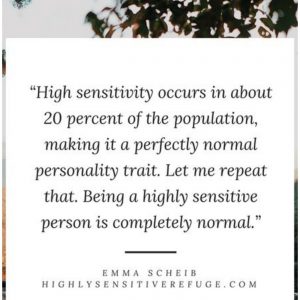Nobody is shielded from low self esteem. However, it is important to differentiate between feelings of low esteem from sadness, or from the effects of a string of bad days. There are a couple of symptoms of low self esteem that you can look out for if you feel that you or a loved one may be suffering from low self esteem.
First, it is important to realize that unlike sadness or feeling like you woke up from the wrong side of the bed does not constitute low self esteem. This is because psychologists often consider self esteem as a persisting self-conception. This enduring self-image can permeate into a persons every activities, as it is at the core of a persons conception of his or her self-worth.
One of the first symptoms is constant self-deprecation. You may find that a person with low self esteem will easily say bad things about his or her self, passing comments even about how they are not worth the time or effort that people give them. They may also talk about their incapacity to fulfil their duties.
In addition to self-deprecation, people suffering from low self esteem will constantly express unhappiness about their bodies and how they look. Poor self-image is one of the most telling signs of low self esteem. They may constantly be paranoid and sensitive about what people think about how they look. Whats worse, some of them may respond to this bad self-image through some form of eating disorder.
People who suffer from low self esteem may be obsessed with order, forcing themselves to comply by an impossible standard of perfection in whatever task they are involved in. This may make them work slower than others, and may make them more vulnerable to feelings of not doing well because of their own impossible expectations. This feeling of failure (despite the fact that they did not fail, except by their own impossible, perfectionist standards) helps further feed their bad perception of their own self-worth.
They may also be extremely eager to please, depending very heavily on the approval of others in order to feel good about themselves. They find no pleasure in completing and succeeding in tasks unless they are recognized by the people whose opinions they believe matter.
They may even be all too eager to compare themselves to other people they have high regard to. However, it is important to note that these comparisons, for them, fulfil the necessary function of highlighting what they lack and what flaws they possess.
While there are those who withdraw from society as a result of their low self esteem, there are those who respond by uninhibited anger against themselves or other people. They may express this either by hurting themselves or the people around them, even if these people are not those who triggered feelings of anger. After all, because of low self esteem, these people begin to hate themselves and the people around them. They are also likelier to suddenly explode in anger over very little issues when they feel that they are being cornered or humiliated.
By identifying the symptoms of low self esteem, you will be able to determine the best course of action in order to appropriately respond. If you or someone you know scores positively in terms of these symptoms, then it may be good to seek help as soon as possible from a psychologist or therapist.




